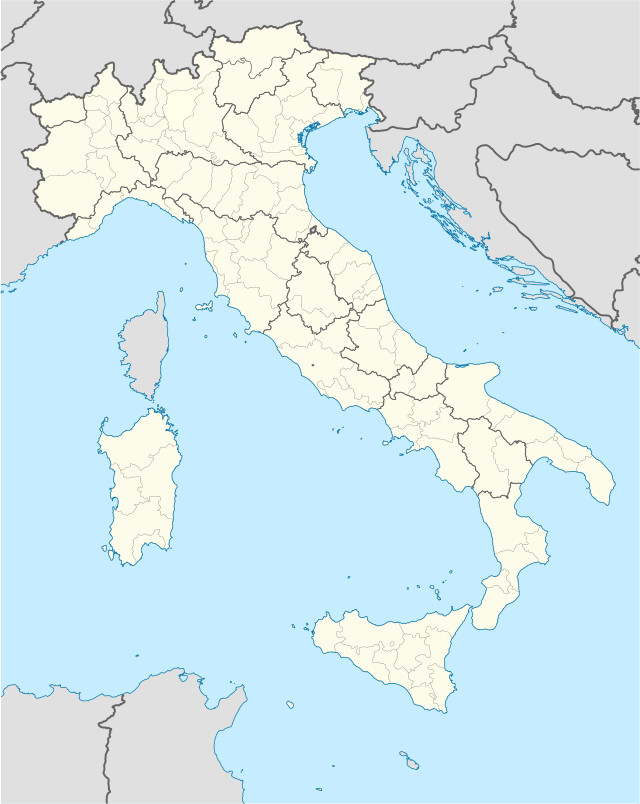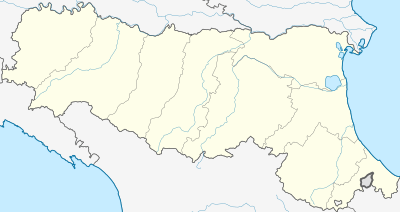Montecchio Emilia
Montecchio Emilia (Reggiano: Montè-c or Muntè-c) is a comune (municipality) in the Province of Reggio Emilia in the Italian region Emilia-Romagna, located about 70 kilometres (43 mi) northwest of Bologna and about 15 kilometres (9 mi) west of Reggio Emilia.
Montecchio Emilia | |
|---|---|
| Comune di Montecchio Emilia | |
Castle of Montecchio. | |
Location of Montecchio Emilia 
| |
 Montecchio Emilia Location of Montecchio Emilia in Italy  Montecchio Emilia Montecchio Emilia (Emilia-Romagna) | |
| Coordinates: 44°41′N 10°26′E | |
| Country | Italy |
| Region | Emilia-Romagna |
| Province | Reggio Emilia (RE) |
| Frazioni | Aiola, Braglia, Case Badodi, Case Gambetti, Case Pozzi, Cornocchio, Croce, Spadarotta |
| Government | |
| • Mayor | Paolo Colli |
| Area | |
| • Total | 24.39 km2 (9.42 sq mi) |
| Elevation | 99 m (325 ft) |
| Population (31 December 2016)[2] | |
| • Total | 10,622 |
| • Density | 440/km2 (1,100/sq mi) |
| Demonym(s) | Montecchiesi |
| Time zone | UTC+1 (CET) |
| • Summer (DST) | UTC+2 (CEST) |
| Postal code | 42027 |
| Dialing code | 0522 |
| Website | Official website |
Montecchio Emilia borders the following municipalities: Bibbiano, Montechiarugolo, Cavriago, San Polo d'Enza, Sant'Ilario d'Enza. It is a largely industrial town located at nearly half the distance between Reggio and the other major nearby city, Parma.
History
In ancient times, it was called Monticulum, meaning "small mount" and referring to the hilly terrain formed by floods of the nearby river Enza. Traces of remains from as early as the Bronze Age (18th-17th centuries BC) have been found in the communal territory.
In the Middle Ages and early Modern times Montecchio (mentioned for the first time in a 781 diplom) was a fortified places contended between the Papal States, the Visconti of Milan, the Barbiano, the Sforza, the Gonzaga, the Farnese and then by Spain, France until, starting from the late Renaissance, it became part of the House of Este-held Duchy of Modena.
In 1859 it became part of the newly formed Italy as Montecchio Emilia.
Main sights
- Church of San Donnino, built in Romanesque style in the 11th century but remade in 1596–1600.
- Sanctuary of Beata Vergine dell'olmo, in Baroque style
- Castle, mentioned for the first time in 1116 in a diplom by Matilde of Canossa.
External links
- "Superficie di Comuni Province e Regioni italiane al 9 ottobre 2011". Istat. Retrieved 16 March 2019.
- "Popolazione Residente al 1° Gennaio 2018". Istat. Retrieved 16 March 2019.